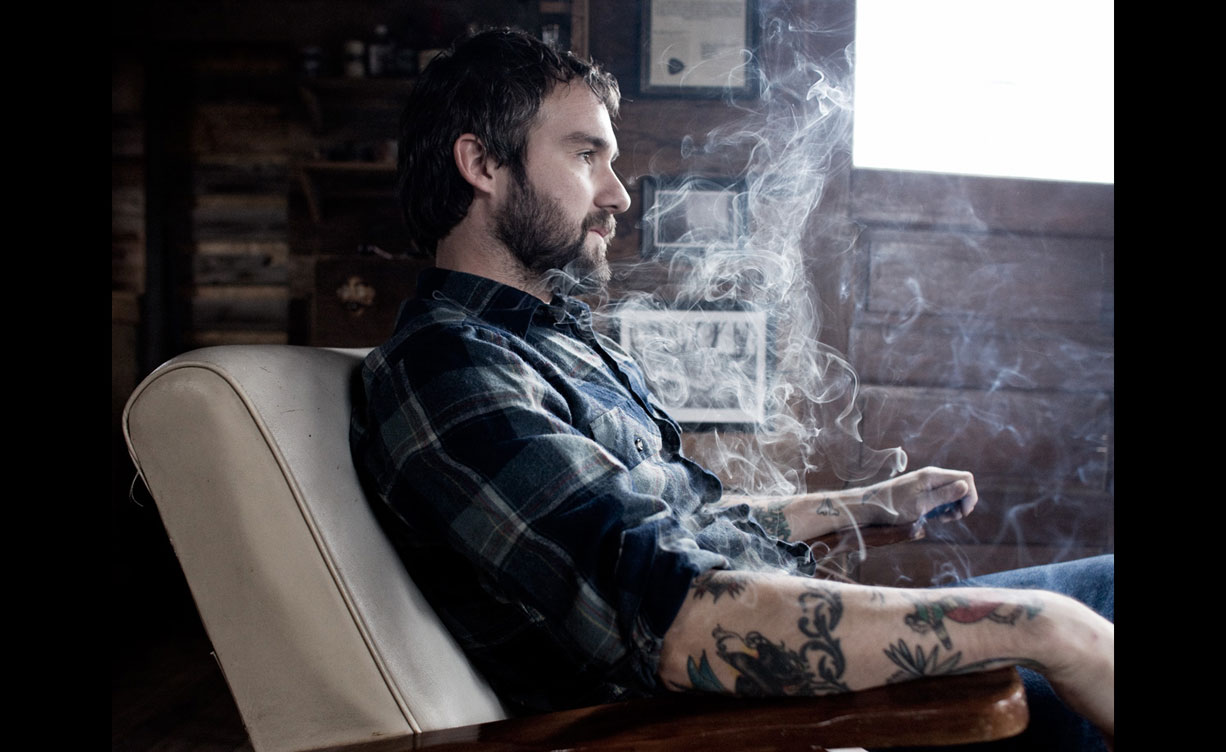No matter where he sets up shop, each time he strolls on stage, tips his hat, raises his glass, shares an anecdote, and lets loose his ancient, soulful moan of a voice (which sounds every bit as old as that barn his ancestors built), every pair of eyes in the room is immediately fixated on him.
He has played with similar-minded acts like Against Me! and Lucero, as well as long-standing metal stalwarts Clutch and seemingly incongruous bands like Converge, Lightning Bolt, and Girls Against Boys. He even spent a string of dates opening for The Pogues.
But no matter the room, whatever the conversation, William Elliott Whitmore will stop it dead in its tracks for 45 minutes to an hour, with songs about his family, personal triumph, history, and the natural world.
And though he’s traveled from one corner of the globe to the other, belting out song after song at venues ranging from small house parties to crowds of thousands, the road to the stage wasn’t always the obvious one.
“I’ve been writing songs and stories since I was a little kid,” Whitmore says. “But it never seemed like something I could actually do for a living. I never expected that. I thought that I’d end up working in a factory or farming. And I’ve done those things. But everybody has that moment in their life where the fates align, and they suddenly realize, ‘Hey, I want to do this with my life. This has meaning to me. Fortunately for me, I was holding a banjo at that time.”
Outside of an obvious gift for song, as well as a voice that recalls scratchy Dock Boggs and Charlie Poole 78s as easily as it does the powerhouse soul of Percy Sledge and Bobby Bland‘s 1950s A-sides, it’s his thematic focus on family, roots, and nature that gives his music the sort of straightforward authenticity that many of his peers lack.
There are no break-up songs, no self-pity, and no self-indulgent musings. Even his songs about death have an ultimately positive vibe, treating it as just another part of the circle of life.
“I was raised to believe that it’s the things that go wrong that make you a stronger person,” Whitmore says. “You have to do something good to counteract the evil out there.”
It’s this punk-rock tenacity that makes him fundamentally different from nearly every other roots act pounding the pavement on the circuit today. He embraces the same kind of “brother’s keeper,” do-or-die attitude that would have you reaching down in the mosh pit to help a fallen comrade to his feet.
Lyrically and spiritually, Whitmore’s roots lie more in political hip-hop groups like The Coup and DC hardcore originators Minor Threat than old-time favorite Uncle Dave Macon.
“Honestly, one of my biggest influences lately has been Boots Riley from The Coup,” he says. “He knows how to write some seriously good political songs without beating you over the head with his beliefs or naming names. And there’s always something to be said for the classics — Bob Dylan, Johnny Cash, Willie Nelson. But you don’t ever try to ‘be’ them; you just apply what they did to what it is that you want to do.”

